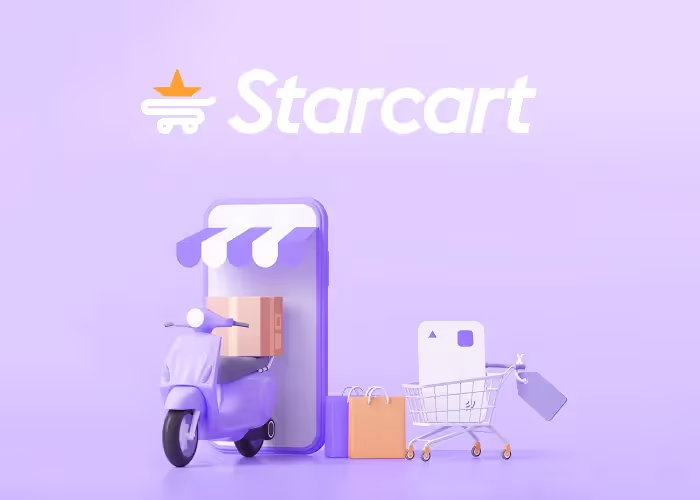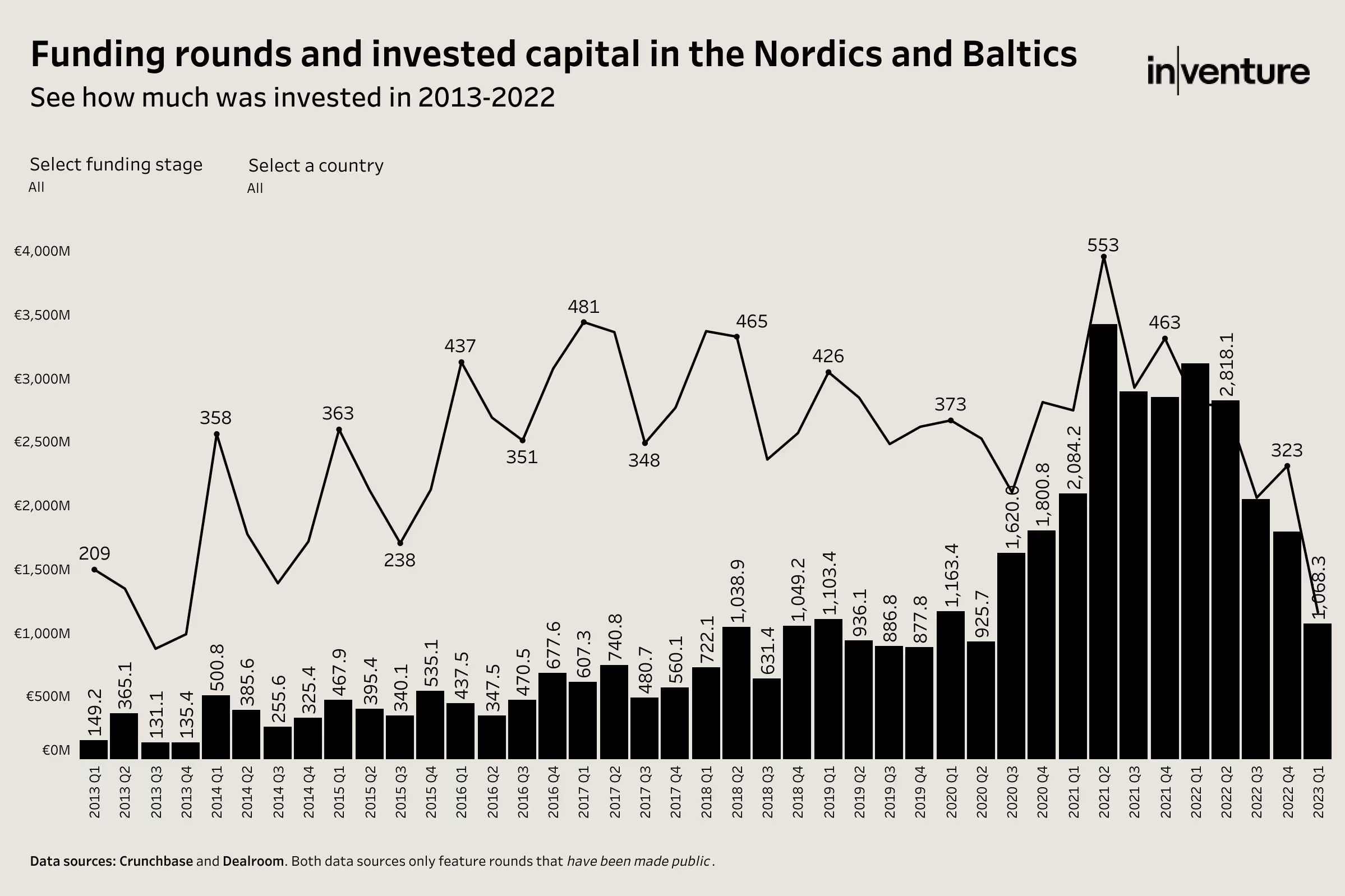With over 2 million stores spread across a patchwork of countries and little cross-border sales, shoppers are stuck with a maze of options. Think about the last time you went online to buy something. How many niche retailers and online big-box store websites did you land on to find what you’re looking for… at the right price?
There’s a massive opportunity here.
Thats why today we’re proud to announce Inventure has backed Starcart for a second time, after leading their pre-seed round in 2022.
What excites us is that instead of fighting Europe’s fractured e-commerce market, Starcart embraces it. At first glance, Starcart appears to be yet-another a price comparison site that just points out websites where deals are, but Starcart is an aggregator that makes purchases to retailers and marketplaces on the consumers behalf. Like Expedia or Booking.com, it’s a layer that operates on top of the physical service providers, finding the products and making the purchases on your behalf.
With Starcart, you just add products from a catalogue of 15M+ products into one shopping cart. Starcart will then find you the best prices and shipping options across hundreds of stores, which you can then pay in one checkout. Starcart is currently live in Finland, but soon simplifying the online shopping experience throughout Europe’s fragmented e-commerce market.
This gives Starcart the scale and ease of an e-commerce giant, while being powered by the catalogue and logistics of individual merchants. It’s truly disrupting in an e-commerce industry that’s been stagnant for too long.

Why haven’t we seen this before?
As VCs we’re always looking for founders that understand the moment.
First, what Starcart has built is incredibly hard to do. Underneath the hood is Starcart’s custom-built AI technology that powers bots to make purchases across e-commerce websites, using human interfaces. This is necessary because the alternative would mean doing individual integrations with Europe’s two million merchants, which would take decades. The only practical way to scale up inventory to a large enough level is to do this with bots that can make purchases the same way you and I do — and that isn’t easy.
Second, Starcart saw how to make money here. Even if you wanted to build this a few years ago, it would be very difficult to make money in this space. But with merchants looking for risk-free ways to grow their sales, and the rise of consumers looking for flexible BNPL payment options for their purchases, Starcart has been able to scale up its business very rapidly.
And finally, the payment processing industry is regulated by local financial regulatory authorities. It’s tough to enter this space, it takes time and money to acquire the necessary licenses to operate. This is something that Starcart has already achieved.
Put these factors together and Starcart has created a strong moat to lead this new category they’ve invented. And they have strong growth to show for it — it’s blowing our minds that Starcart’s sales grew 21% over the month of July in Finland, when most Finns are unplugged at their summer cottages.
It takes a killer team to pull this off.

What impressed us about Starcart is that they come with very specific and deep e-commerce industry experience. They have seen everything between 0 to €100M+ revenue.
It takes experience to deeply understand the massive platform changes in e-commerce. Pasi, the Founder and CEO of Starcart, has seen every single change in the Web. In early 2000s, Pasi was leading marketing for Habbo Hotel, boasting 250 million players and the largest online game at the time. Many of his previous colleagues went later to found Supercell. Ever since he has led €100M+ businesses as CEO, co-founder, and advisor, always at the cutting edge of the next stage of digital evolution. With these insights he built the pieces of a puzzle that no one had ever completed before.
Pasi’s co-founder Lauri started his career at Inventure-backed Conmio (a robust platform used by companies like NYT and Bloomberg for bringing media content into mobile browsers, when that was still a challenge) and later went up and down the software stack to build software teams at Reaktor, working with some of the world’s most demanding clients. Typically scaling software teams is a challenge to any startup, however it seems that Lauri’s rolodex is just deeper than most people. By keeping the team small but deeply experienced and utilizing a cutting-edge software stack, Starcart hasn’t had the need to blow up the tech team just to keep the pieces together. It’s a “do more with less” attitude.
We look for founders that have real deep insights about the largest changes in markets, and this team has it. Starcart is tackling a universal problem and has built a unique solution for it. And the way we see it, the upside here is unlimited.



